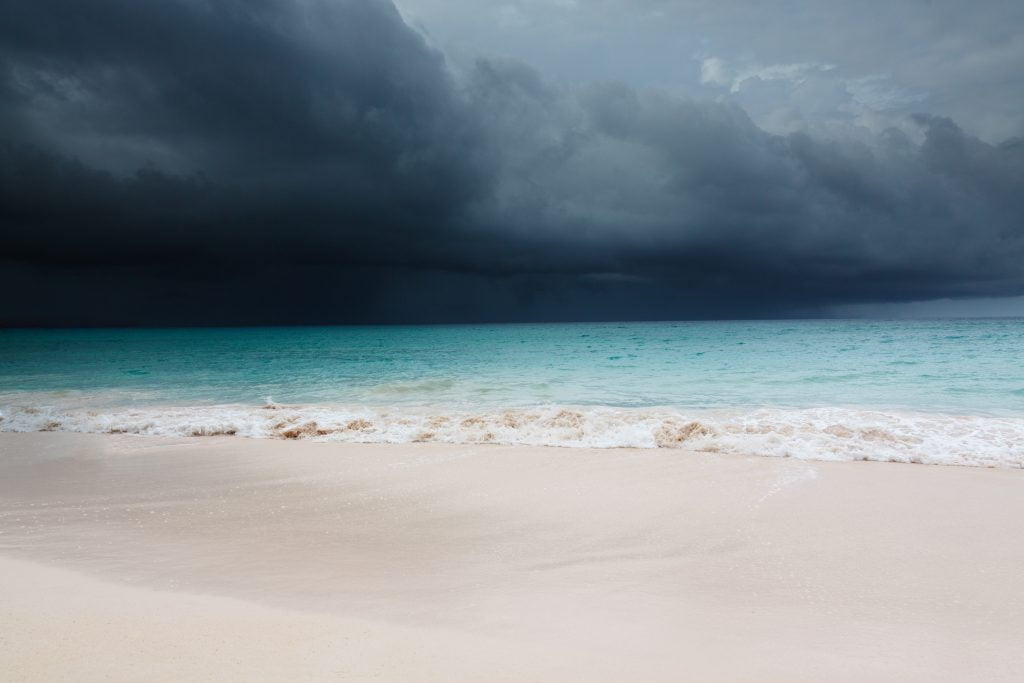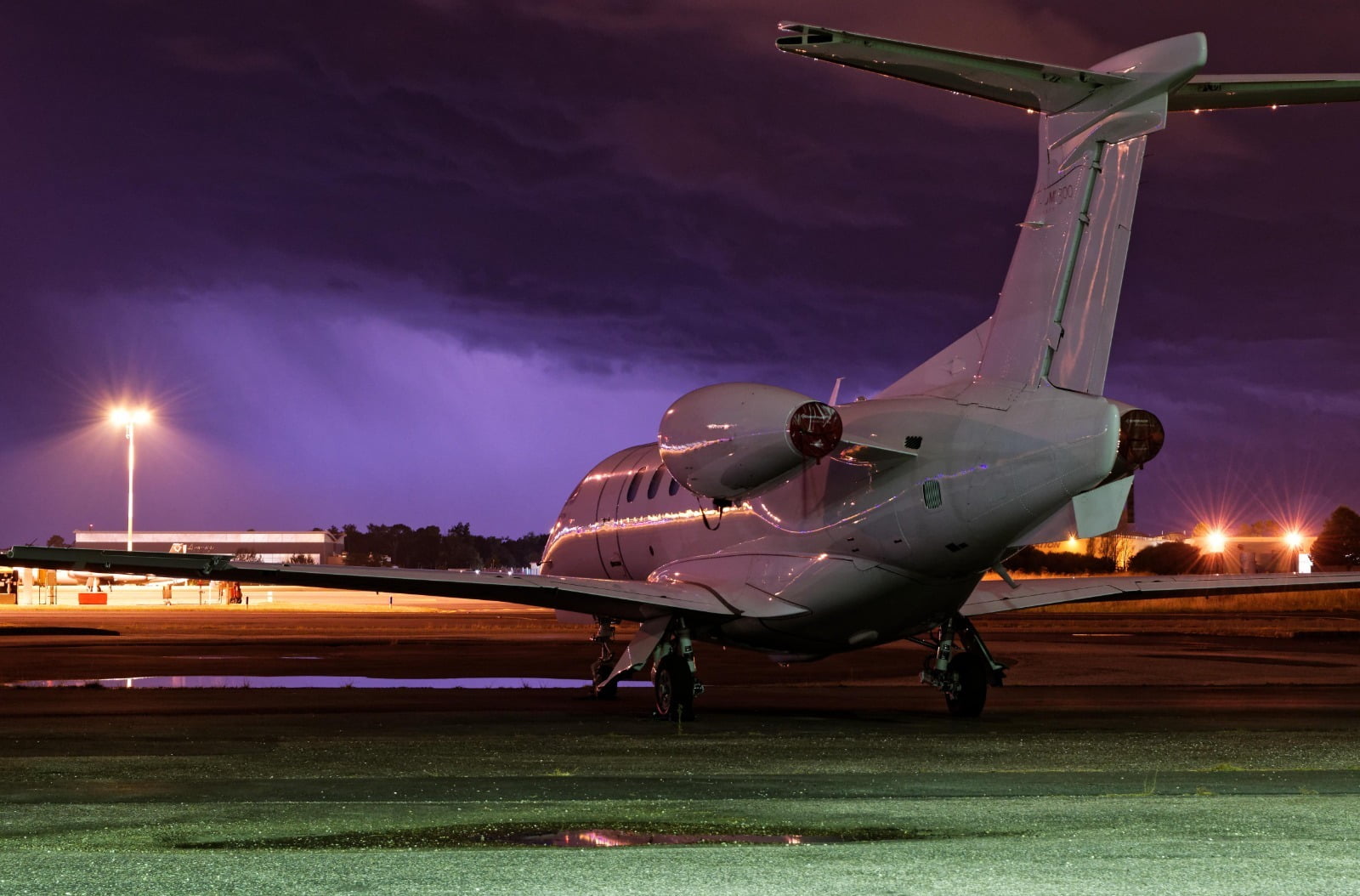Whether it’s the beaches, the sun, or the nightlife, the Caribbean attracts millions of global travelers to enjoy its unique and lively vibe – 32 million to be exact according to the Caribbean Tourism Organization’s latest annual report in 2019 (pre-Covid figures). Yet the arrival of summer to the region coincides with the beginning of the Atlantic Hurricane Season, officially from June 1st to November 30th, which also heavily affects the U.S. East Coast and Gulf Coast. Private aviation plays a pivotal role thanks to its flexibility during extreme weather conditions.
More specifically, private aviation trip support teams have an instrumental role in assessing the movements of private aircraft before a hurricane strikes a certain region, providing a safe flight plan to avoid the storm and alignment with the weather forecast and the authority’s recommendations. Private jets have the flexibility to alter their flight routes based on real-time weather updates and forecasts while enabling them to navigate around the hurricane and select the safest and most efficient path to reach the desired destination – this requires the expert advice of an experienced trip support company.
Understanding the Caribbean’s Hurricane Season
Before sharing all the benefits of private aviation during extreme weather conditions, it’s important to understand how the hurricane season in the Caribbean can disrupt aviation and travel as a whole. In the early stages of the hurricane season, typically from June to August, tropical storms are more common. These storms originate from disturbances in the tropical Atlantic and Caribbean Sea, developing into organized systems with sustained winds of at least 40 mph.
The peak of the Caribbean hurricane season occurs from mid-August to mid-October. During this period, the conditions in the Atlantic Ocean, including warm sea surface temperatures and low wind, are most conducive to the formation and intensification of hurricanes. They are classified into different categories based on their intensity using the Saffir-Simpson Hurricane Wind Scale, which rates hurricanes into five categories based on their maximum sustained wind speeds.
Staying constantly informed is paramount while also understanding that hurricanes can form and impact the Caribbean before and after the peak season. Residents, travelers, and local authorities in the region must remain vigilant throughout the entire hurricane season, closely monitor weather updates from reputable sources such as the National Hurricane Center (NHC), and follow the guidance and instructions of local emergency management agencies.
Private Jet Travel: Advantages and Considerations
Private aviation’s main traits, flexibility, comfort, and customization, allow trip support companies to deliver highly specialized services to crews and passengers during extreme weather conditions. For starters, private jets can be ready to depart on short notice, providing a faster means of escape while providing access to remote airports in safer regions and reducing travel time and exposure to the hurricane’s path.
Private aviation’s commercial counterpart, for instance, is heavily affected by hurricanes as flight cancellations are a norm, even many hours before a storm hits a specific location. Hurricane Irma, considered the greatest Atlantic hurricane ever recorded outside the Gulf of Mexico and the Caribbean Sea, grounded thousands of flights on four continents – roughly 15,000 in total and 10,000 in Florida alone. The previous provides evidence of the sheer disruption that hurricanes can generate in travel, especially during the peak summer season.
In general, hurricanes can disrupt airline operations beyond the immediate affected areas. Flight crews, aircraft, and maintenance resources may be displaced, leading to operational challenges for airlines across their network. This can result in further flight cancellations and delays in other regions as well. Even if airports remain open, airlines often cancel or delay flights to and from areas that are in the path of a hurricane or experiencing severe weather conditions.
In contrast, private jet travel in alignment with trip support services, can grant a lifeline to passengers left stranded in regions with widespread commercial airline cancelations, allowing them to fly back home or to move to a safer region that won’t be impacted by a hurricane. Under this emergency scenario, one of a trip support’s main tasks is to safely assist in rerouting private jet flights to ensure the safety of passengers and crew, among many other services provided by a specialized trip support company. We will review those in detail next.
Essential Components of Private Jet Trip Support during Hurricane Season
As we’ve shared in a recent trip support blog, choosing an experienced company with preestablished relationships with operators and aviation authorities will allow for a seamless operation, especially during urgent situations like extreme weather. Yet to accomplish a safe flight while providing a flawless experience for the crew and passengers, many moving parts require to fall in place, starting with constant communication with all parties and real-time monitoring of the weather conditions, for live understanding of a hurricane’s path, intensity, and potential impact on airports and flight routes.

The previous is also tightly linked with weather analysis and route planning. Here, private jet trip support professionals analyze the hurricane’s projected path and assess the associated weather conditions, such as strong winds, heavy rainfall, and turbulence. Based on this analysis, alternative flight routes are identified to avoid hurricane-affected areas while still safely reaching the intended destination.
In a paralleled process, the trip support team must coordinate with Air Traffic Control to obtain the necessary clearances and coordinate the rerouting of private jet flights. Again, communication is a key aspect to ensure a smooth transition to the alternative flight route and maintain safe separation from other aircraft. By working alongside authorities, the trip support coordinators can identify and secure access to airports that are outside the affected areas. These airports serve as alternative destinations where private jets can safely land and wait out the storm or proceed to the final destination once the hurricane has passed.
Last but not least, ground handling services must be coordinated beforehand at the rerouted airports to ensure smooth operations while arranging services such as aircraft parking, refueling, catering, and crew accommodation to support the rerouted flight with the ultimate goal of providing the safest option to all involved parties.
Preparing for a Private Jet Trip during the Hurricane Season
While it is an exemption that a hurricane strikes exactly the date, time, and location of your stay in the Caribbean, trusting an experienced trip support company like Icarus Jet will secure that in the event of extreme weather conditions, crew and passengers will be able to get to safety. The previous is the reason behind the open communication that trip support coordinators always maintain with the flight crew, even during normal conditions, keeping them informed about the overall travel plans and discussing any concerns or changes related to potential hurricanes. Trip support services consider the full extent of the operation, before, during, and after the flight.
Naturally, if a hurricane will imminently affect the travel plans of the private jet passengers, rerouting options and identifying secure access to alternate airports will be the focus of the trip support team. It’s important to note that rerouting private jet flights during hurricanes depends on various factors, including the hurricane’s severity, the availability of alternative airports, and air traffic control restrictions. The primary objective is to prioritize the safety and well-being of passengers and crew by avoiding areas of high risk and adverse weather conditions.
Once an aircraft has landed safely in an alternate airport, the following actions from a trip support perspective will depend on the decision to stay in the aircraft or move to a hotel. The length of stay usually determines which option will the owner, crew, or passengers take. If they decide to leave the airport, they will need to undergo customs and immigration as a result of landing in an international terminal, a process that is taken care of by the trip support team. Finally, coordinating the next move of that aircraft once the hurricane leaves the region and it’s safe to fly again while forecasting the weather and accounting for overflight and landing permits, are part of the trip support’s team mission.
Conclusion
Safety should always be the top priority when planning a private jet trip during the hurricane season. Staying informed from a crew and passenger standpoint, communicating with your private jet trip support team, and being flexible in your travel plans will ensure a safe and smooth journey. Trip support teams are highly trained professionals that understand the immediate needs of an operation that requires urgent assistance, with strict protocols and checklists that synchronize with international aviation authorities to determine the best alternative airport options while establishing the safest flight plan in the need of a reroute.
Private aviation is the only means of transportation that can help stranded families evacuate a region before its hit by a hurricane – thanks to its flexibility and the capacity to source available aircraft and obtain the needed urgent permits for operations, it enables passengers to safely go home before bad weather strikes while maintaining them and the crew constantly informed with rapidly evolving weather conditions updates.




